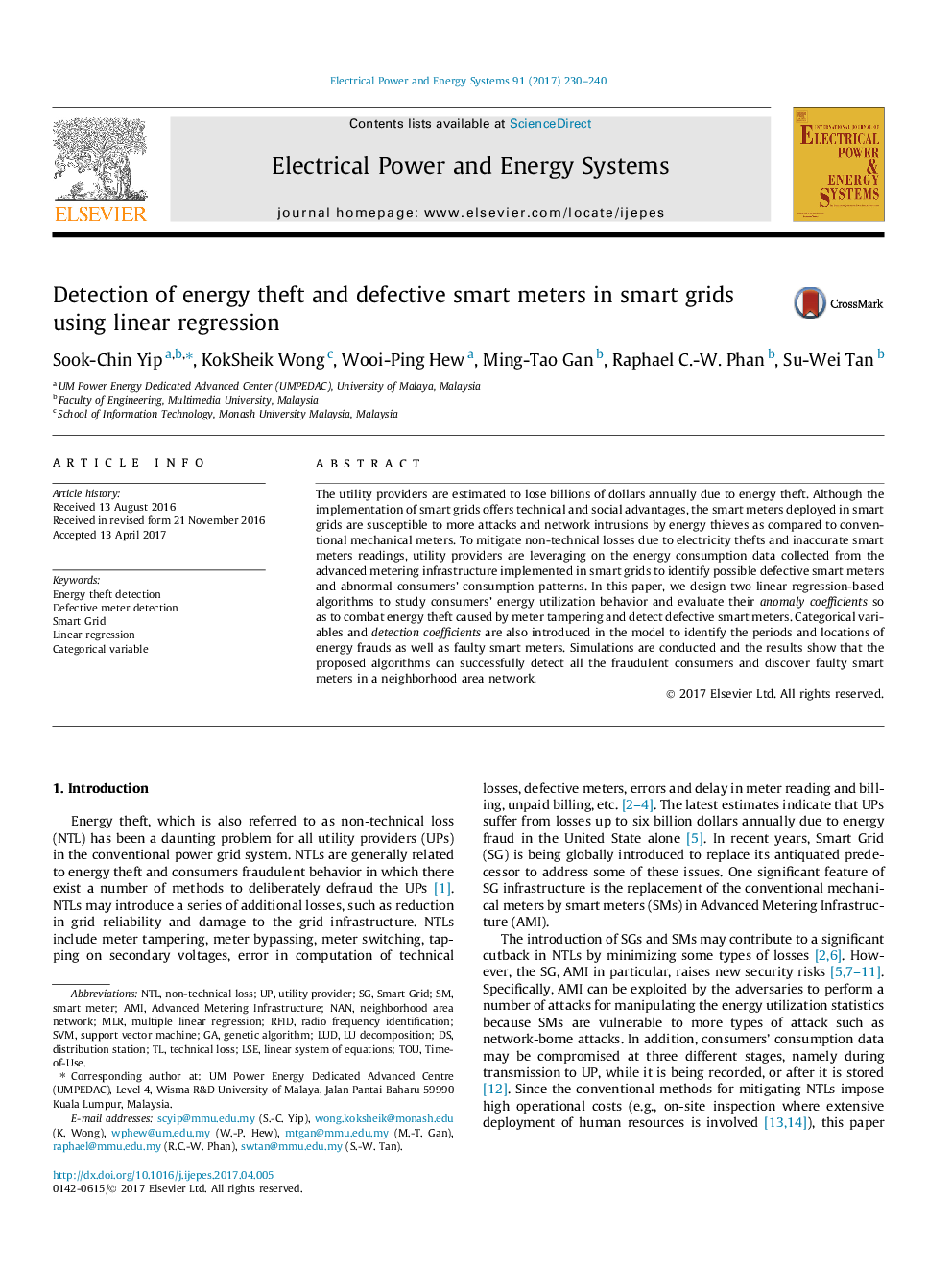| Article ID | Journal | Published Year | Pages | File Type |
|---|---|---|---|---|
| 4945490 | International Journal of Electrical Power & Energy Systems | 2017 | 11 Pages |
Abstract
The utility providers are estimated to lose billions of dollars annually due to energy theft. Although the implementation of smart grids offers technical and social advantages, the smart meters deployed in smart grids are susceptible to more attacks and network intrusions by energy thieves as compared to conventional mechanical meters. To mitigate non-technical losses due to electricity thefts and inaccurate smart meters readings, utility providers are leveraging on the energy consumption data collected from the advanced metering infrastructure implemented in smart grids to identify possible defective smart meters and abnormal consumers' consumption patterns. In this paper, we design two linear regression-based algorithms to study consumers' energy utilization behavior and evaluate their anomaly coefficients so as to combat energy theft caused by meter tampering and detect defective smart meters. Categorical variables and detection coefficients are also introduced in the model to identify the periods and locations of energy frauds as well as faulty smart meters. Simulations are conducted and the results show that the proposed algorithms can successfully detect all the fraudulent consumers and discover faulty smart meters in a neighborhood area network.
Keywords
LUDneighborhood area networkTOUNon-technical lossMLRNTLLSEAmIGenetic algorithmLU decompositionnanLinear regressionMultiple linear regressionTime-of-useAdvanced metering infrastructureRFIDLinear system of equationsSmart gridRadio frequency identificationSVMSupport vector machineSmart meterCategorical variable
Related Topics
Physical Sciences and Engineering
Computer Science
Artificial Intelligence
Authors
Sook-Chin Yip, KokSheik Wong, Wooi-Ping Hew, Ming-Tao Gan, Raphael C.-W. Phan, Su-Wei Tan,
